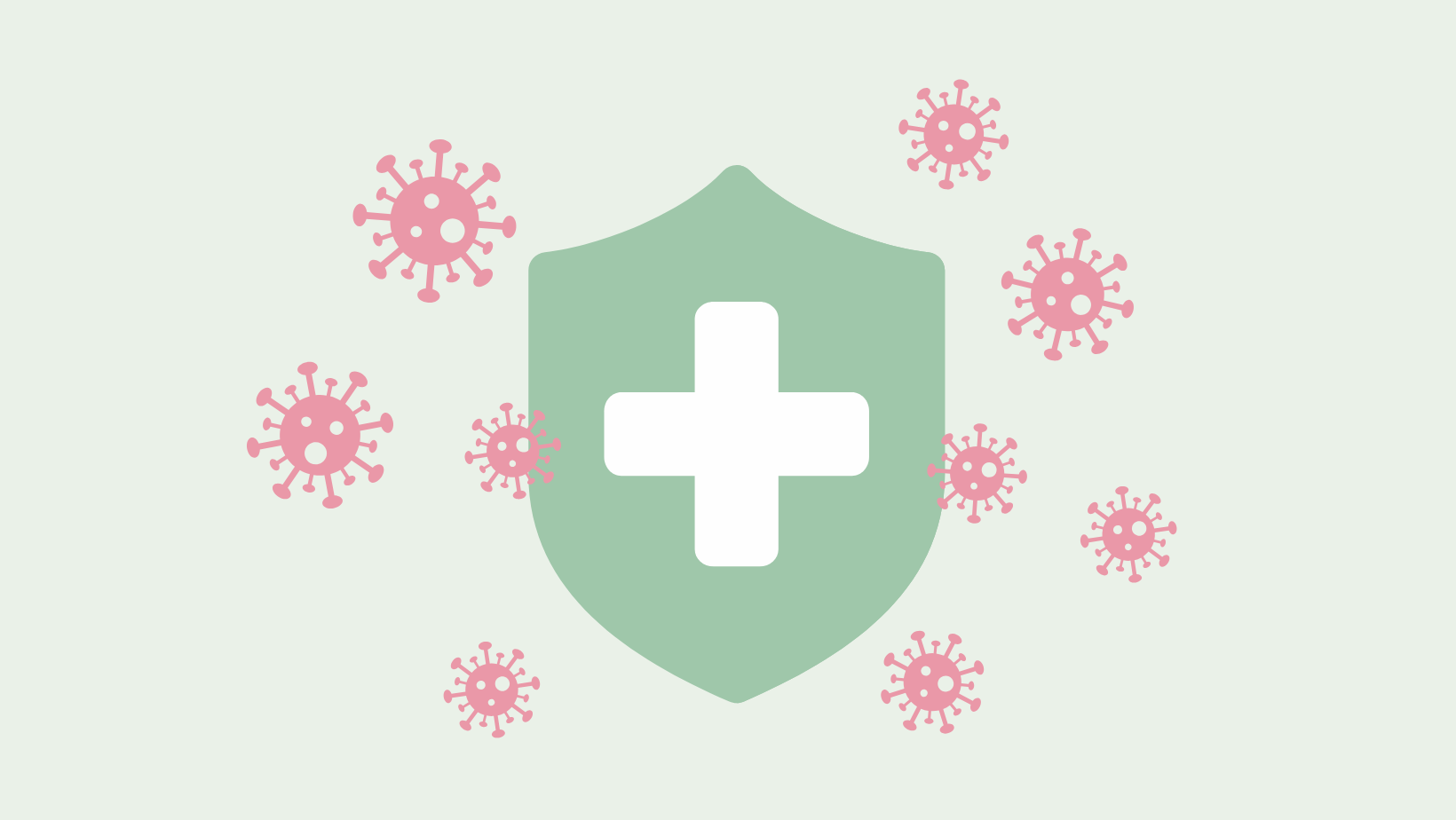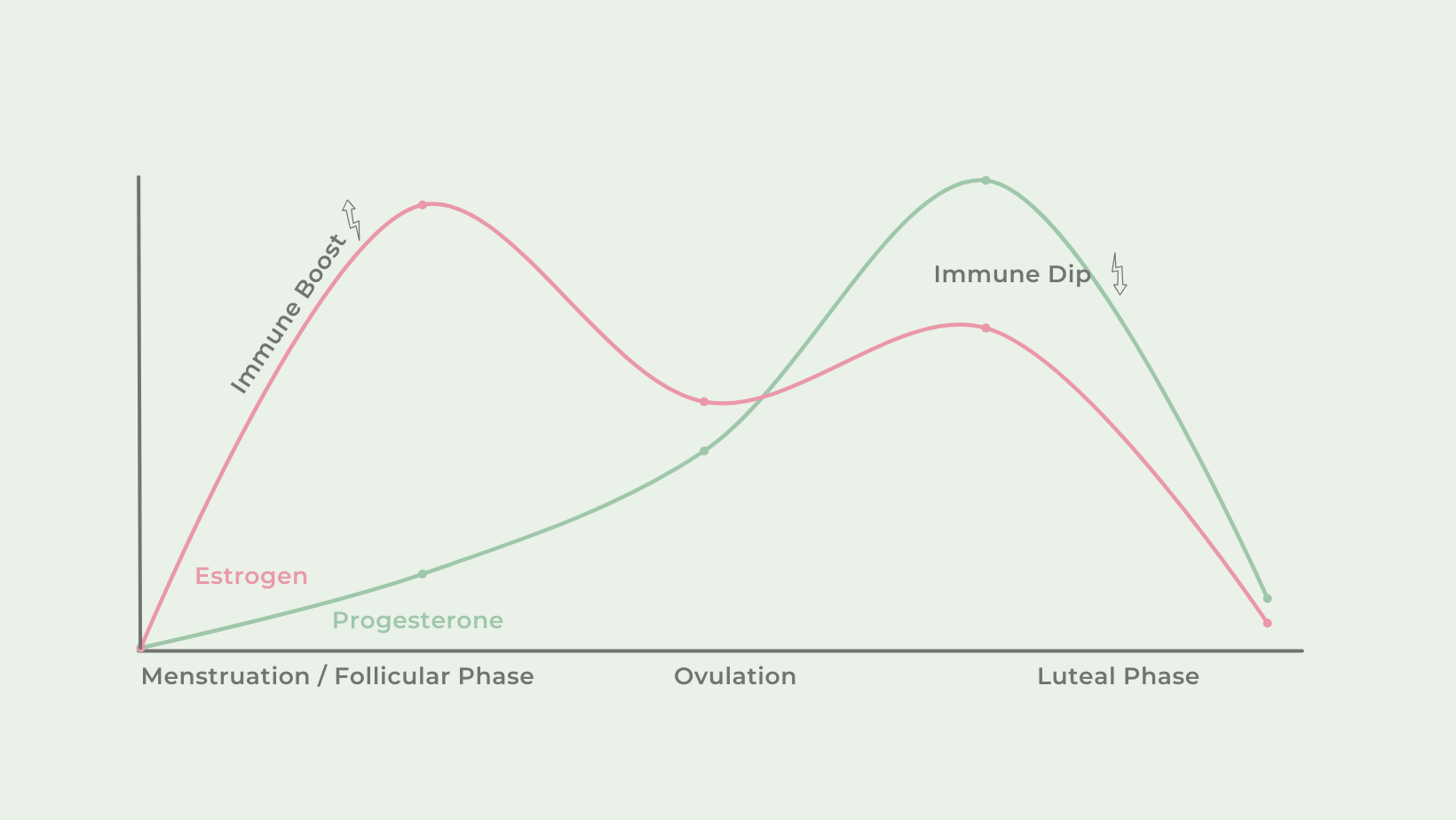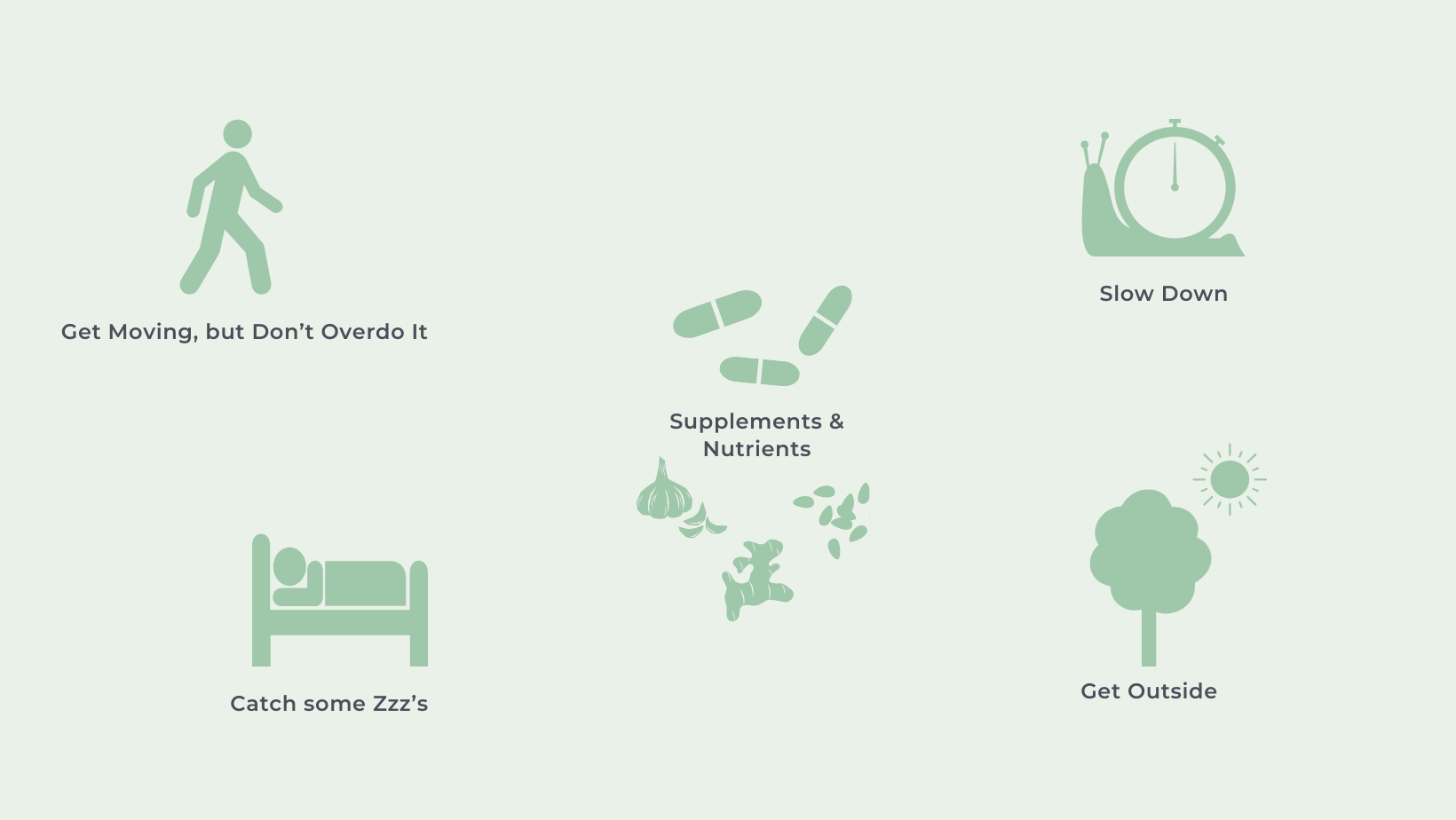The Busy Woman’s Guide to Supporting Immunity

Supporting Your Health Through Every Phase of the Month
As I sit here reflecting on the past week, when my son was fighting a bacterial infection, I’ve been reminded how important it is to keep my immune system strong—especially when I’m juggling a million things.
If you’re like me, constantly balancing work, family, and personal health demands, staying healthy can feel like a challenge or even fall under the radar. But the truth is, our immune system needs consistent care, not just during cold and flu season or when we’re dealing with a sick kid at home.
It may not come as a surprise but as women, our immune system is uniquely tied to our menstrual cycle. So, understanding how our hormones ebb and flow throughout the month can help us take better care of ourselves—and stay healthy even when life is busy.
Let’s break it down, and I’ll share some of the strategies that have been working for me as I juggle mom life, work, and everything in between.
Why Prioritizing Immune Health is a Year-Round Job
Our immune system constantly works to keep us healthy, but it doesn’t operate the same every day—especially for women. Studies show that between stress, sleep deprivation (hello, parenthood!), and hormonal fluctuations, our immunity can vary depending on where we are in our menstrual cycle. The key is to give our bodies the proper support at the right time.
Here’s how our cycle affects our immune health and what we can do to stay strong, no matter what phase we’re in.
How the Menstrual Cycle Impacts Your Immune System
As women, our immune system changes with our hormones. At different points in the month, we may feel energetic and resilient, while at other times, we may feel more run down and are more susceptible to infections. This is all thanks to the dance between estrogen and progesterone throughout our menstrual cycle.
- Follicular Phase (Days 1-14): This phase starts with the first day of your period and runs until ovulation. At the start, your immune system may be slightly suppressed due to inflammation from menstruation. But as estrogen levels rise after your period, you’ll get an immune boost, leaving you feeling more energetic and ready to tackle whatever comes your way.
- Ovulation (Around Day 14): When estrogen peaks, your immune system is at its strongest. You’ll likely feel your best around ovulation, with more energy and resilience to infections.
- Luteal Phase (Days 15-28): After ovulation, progesterone takes over, and with it comes a bit of an immune dip. Progesterone is important for preparing the body for a potential pregnancy, but it also suppresses the immune system slightly, making you more vulnerable to colds or infections during this phase. You may also feel more tired or sluggish, especially if you’re not getting enough rest.

Nourishment: What to Eat to Support Immunity All Month Long
The good news? You don’t have to make drastic changes to your diet to support your immune system—you just need a few key nutrients and some consistency.
- Vitamin C: Foods like citrus fruits, bell peppers, and berries are rich in vitamin C, which helps your immune system stay strong. I like to add a handful of berries to my morning smoothie or snack on some orange slices to keep my vitamin C levels up.
- Zinc: Zinc is an essential nutrient for immune function. Some studies show a possible benefit of zinc supplementation for women with PCOS, or severe period pain (primary dysmenorrhea). You can find it in nuts, seeds, lentils, and even pumpkin seeds. Adding these to salads or soups is an easy way to incorporate them.
- Garlic and Ginger: These kitchen staples are known for their immune-boosting properties. I love making a ginger tea in the morning, or adding garlic and ginger to my asian inspired veggie leftover dish "Phfann-t- asia" —an easy, delicious way to help my immune system while keeping my meals flavorful.
During the luteal phase, when immunity dips, focus on nutrient-rich, anti-inflammatory foods like leafy greens, turmeric, and magnesium-rich foods (hello, dark chocolate!). These can help your body combat the effects of lower immunity.
Sleep: Your Immune System’s Best Friend
Let’s be honest—getting enough sleep can feel impossible some days (or weeks). But sleep is critical for immune health. When you’re sleep-deprived, your immune system doesn’t get the time it needs to recover and repair itself, leaving you more vulnerable to illness.
In the follicular phase, when your energy levels are higher, you might be able to get by with less sleep, but it’s still important to create a bedtime routine that supports good rest. During the luteal phase, when progesterone is higher and you’re more prone to fatigue, it’s especially important to prioritize sleep.
For me, I’ve found that even on the busiest days, and days when I doubt my mum-skills, sticking to a calming nighttime routine—like winding down with an (audio) book—makes a huge difference in how I feel the next day. And when sleep isn’t perfect (hello, motherhood!), I try to take it easy the next day, see it as a new opportunity and focus on recovery.

Movement: Exercise for Immune Support
Exercise is another powerful tool for keeping your immune system strong, but the key is balance. Regular moderate exercise boosts circulation, helping immune cells travel throughout the body more effectively.
A study indicates exercise performance might slightly diminish during the early follicular phase. During your luteal phase, your immune system naturally dips, and so do your energy levels. So it's essential to listen to your body.
However, I want to mention that every woman's experience with her menstrual cycle is different, but customizing your training routine to align with your menstrual cycle can improve your performance and boost your immune system.
I’ve found that even a 20-minute walk can do wonders for both my body and my mood, especially when I’m feeling low energy.
Stress Management: A Must for Immune Health
Let’s face it—stress is a constant companion for most of us, and it can seriously impact our immune health. Chronic stress changes our hormone response and suppresses the immune system, making it harder for your body to fight off infections.
One simple way to manage stress, even on the busiest days, is to practice mindfulness. Deep breathing exercises, even just for a few minutes, can help calm the nervous system and reduce stress levels. Journaling or taking a quick break for some fresh air can also make a big difference.
During the luteal phase, when you’re naturally more tired and stress might feel heavier, give yourself permission to slow down. It’s okay to say no to things that drain you and yes to activities that nourish you.
Supplements: When You Might Need a Little Extra Support
While I try to get most of my nutrients through food, there are times when supplements can be helpful—especially if you’re not getting enough of certain immune-boosting nutrients like vitamin D or zinc.
Despite living in sunny Colorado, I take a vitamin D supplement to make sure I’m supporting my immune system. But as always, I recommend to check with your healthcare provider before starting any new supplements. (Even though I am confident that more than 90% of us don't meet the recommended Vitamin D amount)
The Bottom Line: Tune Into Your Body’s Rhythm
Our immune health isn’t static—it changes with our menstrual cycle, our stress levels, and our lifestyle. By understanding how your hormones affect your immunity, you can make small, intentional changes to stay strong throughout the month.
For me, it’s about consistency. Nourishing my body with good food, moving in a way that feels right, getting as much rest as I can, and finding moments to reduce stress have all made a big difference in how I feel.
Whether you’re juggling work, motherhood, or just trying to get through the day without catching whatever your kid brought home from daycare, I hope these tips help you feel empowered to take care of yourself—because you deserve to feel strong and healthy, no matter what phase of the month you’re in.
What have you found helpful for staying healthy? I’d love to hear your tips and experiences!
